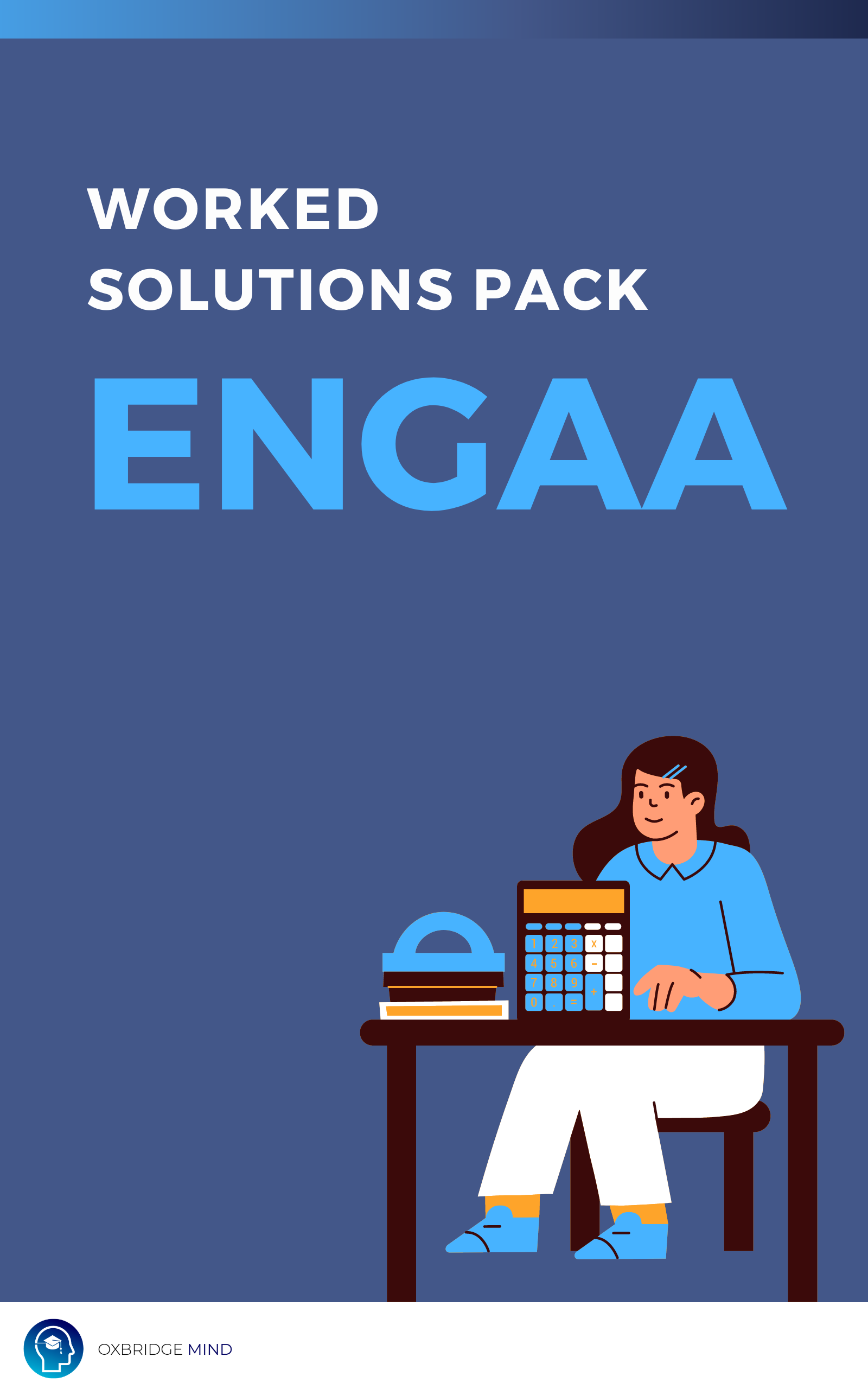Explanation of the Cambridge Engineering Admissions Assessment
UPDATE: Please note that CAAT has announced that they will be discontinuing the ENGAA and will no longer administer the test from 2024. Candidates looking to apply for certain engineering, computer science or science-related subjects at the University of Cambridge or Imperial College London for 2025 entry and beyond will be required to take the ESAT.
Introduction
So, What is the ENGAA? For those wishing to read Engineering at Cambridge, the Engineering Admissions Assessment (ENGAA) is a necessary step in the application process. Introduced in 2016, the ENGAA tests prospective students’ skills in Physics and Mathematics. In short, it is a measure of their capabilities as a future engineer. It is the first entry barrier to an interview and a final offer. In this article, a breakdown of the entire paper shall ensue, along with a brief comment on admission statistics. It is important to note that if your are taking the ENGAA after 2023, you will need to check out our article on the changes to ENGAA 2024.
Apart from the ENGAA, students wishing to read Engineering at Cambridge will have to pass an engineering interview with their chosen college. Some colleges may also require a college-specific written assessment. Submission of written work is not typically requested. However, some colleges will require entrees to do some reading prior to the interview. If this is the case, you will be informed by your college well in advance.
Breakdown of the Paper
The ENGAA is split into two sections, with the first section being split into two further subsections.
- ENGAA Section One, Part A tests standard maths and physics knowledge
- ENGAA Section One, Part B test Advanced Mathematics and Physics
- ENGAA Section Two also test Advanced Mathematics and Physics
All three components are multiple choice based, with each question being worth 1 mark. There is no negative marking. The ENGAA is worth a summative total of 60 marks across Sections 1 and 2.
A specification for the ENGAA, along with a syllabus for its tested content, can be found here Undergraduate Study Engineering Entry Requirements. Pre-entry assumed mathematics knowledge can be found here Mathematics Advice. In order to familiarise yourself with the content and timing of the ENGAA, check out our ENGAA past papers.
In the Examination Centre
Section 1 is sat over a timespan of 60 minutes. Each question has a choice of answers A-E, to be filled in on a separate examination sheet. Section 2 is sat over a similar timespan of 60 minutes, but with choices A-F for each multiple choice question.
Within the exam hall itself, students are allowed an HB pencil and eraser, but no calculator. Extra paper is not given and although no marks are awarded for working, students may write on the question paper.
Admission Statistics
Cambridge Assessment Admissions Testing does not provide detailed analyses of applicants’ exam scores. However, they do provide the raw data of score distribution. The three subsections are each normalised to a score of 1.0 to 9.0, and students are presumably considered upon a weighted average of the three. Exemplar score distributions can be found here.
The ENGAA is the first stage in undergraduate admissions to be able to read Engineering at Cambridge. Students must aim to score highly on the ENGAA to have the chance to receive an interview at their chosen college. Having said this, a high score on the exam does not guarantee an interview. Nor does a low ENGAA score disqualify you from Cambridge. Consider our articles on writing a brilliant Personal Statement, or how to prepare for interviewing for Oxbridge.
ENGAA Preparation Resources
For more information on how to succeed in your Engineering Admissions Test, consider more of our Oxbridge Mind articles, including ‘10 Tips for the ENGAA‘, detailing exactly how to prepare efficiently in the months preceding your examination. In addition, why not check out out ENGAA 1-1 tutoring or our ENGAA Online Course to boost your revision and help you ace the exam!
FAQs
When is the ENGAA?
The ENGAA (Engineering Admissions Assessment) is typically administered in early November each year. Applicants should check the official Cambridge Assessment Admissions Testing website for the specific date and time of the exam.
Does the Cambridge Engineering Admissions Assessment affect your interview chances?
Yes, the ENGAA plays a crucial role in the Cambridge admissions process for Engineering courses. It is used to help select applicants who are invited to interview, alongside other factors such as predicted grades, personal statement, and school reference.
How important is Cambridge Engineering Admissions Assessment?
The ENGAA is very important for applicants to Engineering courses at the University of Cambridge, as it provides a way for admissions tutors to assess applicants’ potential to study and succeed in the subject. However, it is not the only factor considered in the admissions process.
How long is the ENGAA?
The ENGAA is a 2-hour paper-based exam that consists of two sections: Section 1 focuses on problem-solving and critical thinking skills, while Section 2 assesses mathematical knowledge and skills.
What is the pass mark or cut-off mark for the Cambridge Engineering Admissions Assessment?
There is no fixed pass mark or cut-off mark for the ENGAA. Admissions tutors will consider the scores of all applicants in relation to each other and in the context of other application materials, to identify the most promising candidates for interview and admission.


